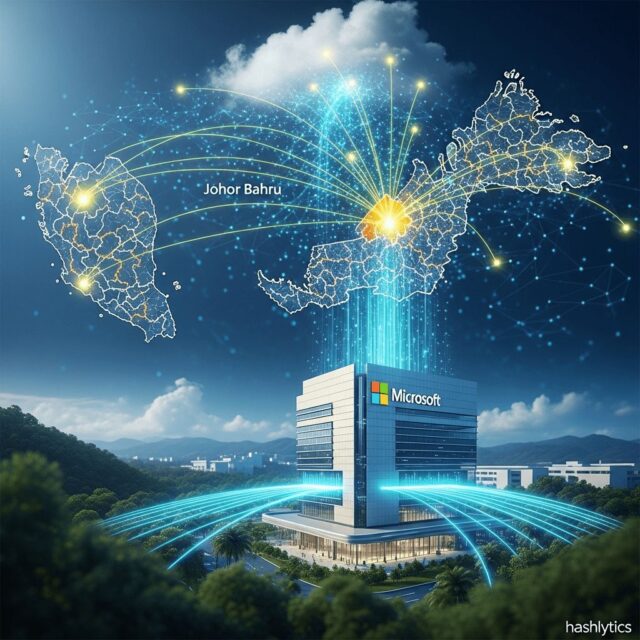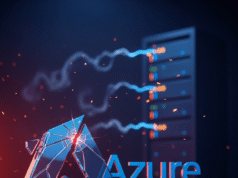Microsoft is significantly expanding its presence in Malaysia with a new cloud region in Johor Bahru, named Southeast Asia 3, reinforcing the country’s position as a key digital hub in Southeast Asia. This move is part of a larger US$2.2 billion investment plan for Malaysia, demonstrating Microsoft’s commitment to meeting the increasing demand for secure, scalable computing and advanced AI infrastructure across both public and private sectors.
According to Laurence Si, Managing Director of Microsoft Malaysia, the new cloud region will offer Microsoft’s most comprehensive suite of cloud and AI services to date. This expansion aims to support regional-scale workloads, multinational users, and the data-intensive requirements of AI systems.
The Johor Bahru location is strategically chosen to capitalize on the region’s growing importance as a digital center. This expansion will solidify Malaysia’s position as a vital hub for advanced computing and AI infrastructure in Southeast Asia. While the specific timeline for the Johor Bahru cloud region’s development remains undisclosed, the initial cloud region, Malaysia West, has already launched with three data centers in Greater Kuala Lumpur.
Southeast Asia 3 is designed to complement the existing infrastructure, with a focus on supporting the next generation of AI-driven applications. It will be integrated into Microsoft’s global Azure network, which spans over 600,000 km of subsea and terrestrial fiber.
Sustainability is a core focus in the development of the new cloud region. The project incorporates renewable biofuel-powered backup systems, closed-loop zero-water cooling to minimize water usage, and rainwater harvesting systems in local schools. Microsoft is also investing in local mangrove ecosystem restoration, demonstrating a commitment to environmental responsibility.
Microsoft has been actively acquiring land in Johor Bahru to support its data center infrastructure development. In June 2024, Microsoft acquired a 123-acre site in Kulai’s Eco Business Park VI from EcoWorld for RM402.3 million (S$124.9 million). In February 2025, it signed a conditional agreement to purchase a 138.5-acre parcel in Tebrau’s Eco Business Park I from EcoWorld for RM693.96 million. Furthermore, Microsoft completed several land purchases from Crescendo Corp, including a 22.5-acre plot in the Nusa Cemerlang Industrial Park for RM119.8 million in January 2025.
Judson Althoff, CEO of Microsoft’s commercial business, highlights the strong interest in AI within Malaysia but notes a gap between workplace adoption and broader public engagement. He estimates that 84% of knowledge workers in Malaysia are already using AI, which is higher than the global average. However, only about a quarter of the broader population actively uses AI tools, despite over 60% expressing interest and awareness. Althoff suggests that this hesitancy arises from uncertainty, with many Malaysians concerned about potential job displacement or their ability to adapt quickly enough.
Mayank Wadhwa, President of Microsoft ASEAN, emphasizes that the expansion in Malaysia is part of a coordinated effort to establish a connected cloud and AI infrastructure across Southeast Asia, rather than a competitive scenario between countries. He clarifies that it’s not a zero-sum game. He highlights that Singapore has been a key regional data center hub for Microsoft and that the current development aims to create interconnected hubs across Southeast Asia to serve customers as the cloud and AI economy grows.
Wadhwa explains that Microsoft’s decisions are based on long-term ecosystem planning, considering factors such as land availability, access to power, construction feasibility, and enterprise demand.
Southeast Asia 3 aligns with Johor’s emergence as a significant data center market in Asia. The state has benefited from spillover demand from Singapore, competitive land and power costs, and improved connectivity through the Johor-Singapore Special Economic Zone.
Fitch Ratings projects substantial growth in Johor’s operating capacity, potentially reaching 5,000 megawatts (MW) by 2029, a significant increase from just 10 MW in 2021. This growth is driven by hyperscalers like Amazon Web Services, YTL, and ST Telemedia Global Data Centres.
Microsoft’s investment in Johor Bahru extends beyond just building data centers; it is about fostering a thriving ecosystem of innovation and talent. Wadhwa emphasizes that ASEAN is not just participating in the AI transformation but leading it, and Microsoft is making a significant investment in the region’s continued success.





